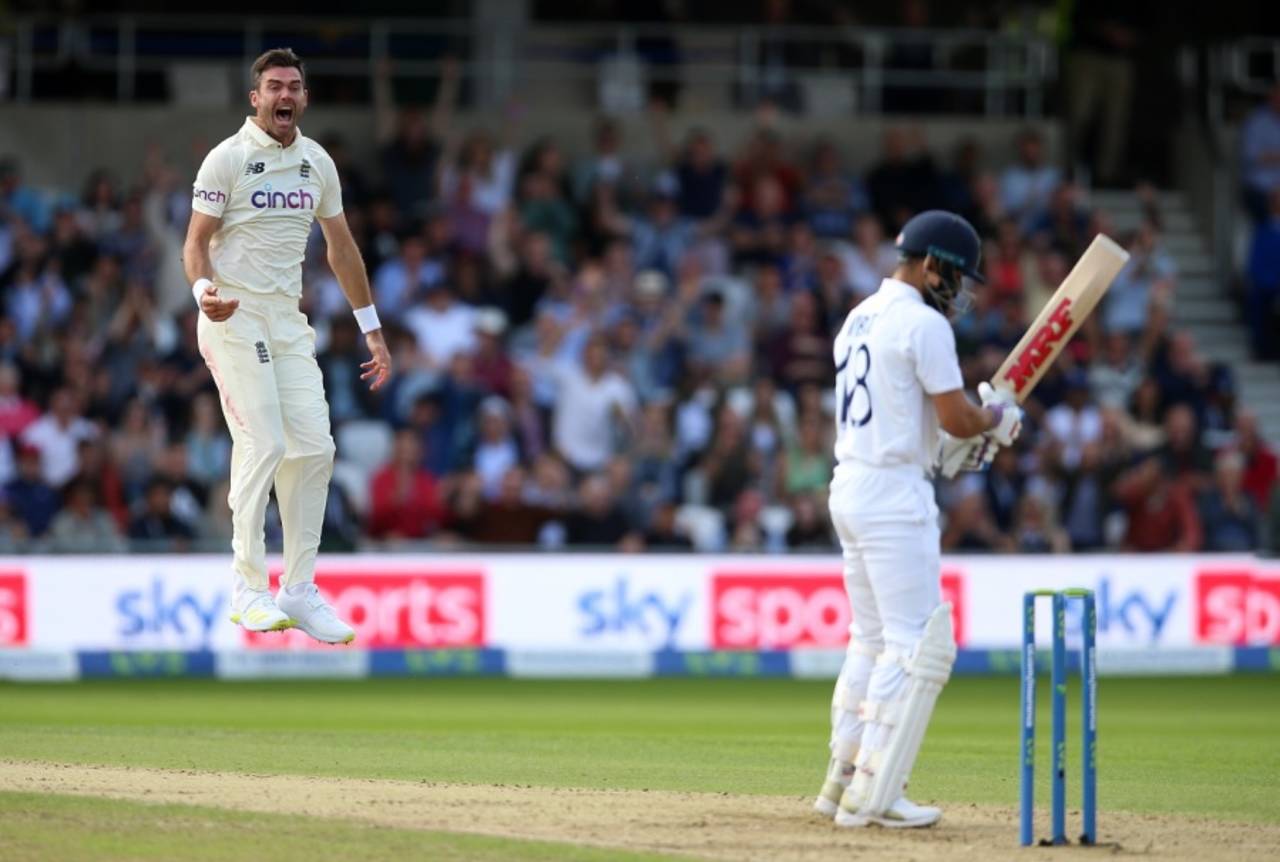At least India have the minor consolation of knowing that on both occasions they nicked a lot of deliveries rather than playing and missing, and were brought undone by some very good bowling.
The collapse at Headingley was engineered by a master of his craft.
James Anderson is the best at his art; his ability to control swing in both directions and disguise his intentions is masterly. The remorseless way he sets up batters with the skill of a seasoned copper makes him an unstoppable force on his day.
Anderson's longevity, and the fact that he achieves consistent movement without periodically losing one or other of his main deliveries, means he's unique as a swing bowler.
I had the pleasure of watching close up as
Bob Massie conducted a masterclass in swing bowling
at Lord's in 1972. He captured 16 wickets on debut - eight in each innings - and mesmerised the English batters with prodigious swing.
There were other occasions when Massie consistently swung the ball and troubled batters but his Test career was over less than 200 days after his Lord's epic.
Anderson has done it successfully for 166 Tests, with no end in sight to his swing-bowling supremacy. India's top order may have been humiliated by a 39-year-old taunter, but it's easier to accept when you succumb to a champion.
The big wicket that really put the skids under India was that of their captain, Virat Kohli. This was the
seventh time Anderson has dismissed Kohli in Test matches, and despite knowing how the ambush was planned, Kohli was unable to avoid such a deftly laid trap.
On my retirement, a number of cricket enthusiasts gleefully reproached me, "Gee you got out to John Snow a lot."
My response was, "At least I was getting out to one of the best."
Not that it's any great consolation, but Kohli will have similar sentiments. It also stands to reason that Kohli, as the biggest danger in the Indian line-up, is going to be regularly confronted by Anderson unless Joe Root misplaces his captaincy marbles.
It's not much fun being bowled out for 78 in a Test match, as I found out
at Lord's in 1968. At least Australia had the excuse of batting on a damp pitch after a rain shower sent water scuttling down the Lord's slope onto the uncovered pitch.
After being bowled out so cheaply, India's only recourse was to hit back quickly and effectively. In those situations a bowling leader needs to stand up and propel himself into the contest.
Western Australia had a superman in that category and he donned his cape in the
1976-77 Gillette Cup semi-final as Queensland chased a mere 78 for victory at the WACA ground.
Before WA went out to bowl, their captain, Rod Marsh, exhorted his troops: "There's a big crowd out there, let's give them some entertainment."
Brushing past his captain,
Dennis Lillee turned as he reached the dressing room door. "Don't worry about entertainment," he exploded, "let's win the [adjectival] match."
It's one thing to say it, but Lillee did it, quickly sending Viv Richards and Greg Chappell - the two opposition champions - on their way as WA charged into the final.
In India's case their response was a disaster. Kohli's opening choice, Ishant Sharma, bowled a horrendous first over and England were quickly on their way to a huge total. Sharma was a strange choice in a situation where early wickets - Root's, especially - were essential to India's hopes of containing England's lead.
Having produced an amazing comeback to win the series after a disastrous collapse at Adelaide, India are now faced with a similar mountain to climb following the Headingley debacle.
Former Australia captain Ian Chappell is a columnist
